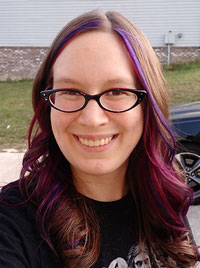Editorial Philosophy
Last Updated: May 2022Connection is my soul’s purpose in this life, and everything I do in my business is about helping author and reader to connect in a space of resonance and deep truth. My approach is intuitive, holistic, collaborative, and flexible, and my top priority is always to help you produce a literary product that you can be proud of and that clearly expresses your ideas and intentions in a way that others can access and engage with.
Humans are natural storytellers, and creative expression is a vital part of our survival in this corporate hellscape we call modern living. Words have the power to connect us across the barriers of space and time, to change hearts and minds, to make people feel seen and understood, to educate, inspire, and persuade.
That’s why representation is so important, why we need diverse voices and inclusive literature, and why my portfolio is dominated by sapphic fiction and works by authors from historically marginalized identity groups.
The flip side of this is that words also have the power to cause harm, and that’s one of the reasons I’m constantly educating myself about experiences and perspectives and ways of doing narrative beyond my own narrow, white, western lens. Decolonizing my editing is an ongoing process, not an end goal, and I am always open to feedback in this area.1
Along those same lines, you will find no prescriptive bullshit here. Language is a tool that continually evolves to meet the needs of its users, not a set of laws to follow. And I am not the grammar police. I do not subscribe to the idea that the English taught in schools is the “correct” form of the language. It is merely one among many equally valid dialects.2
What’s important, and what I focus on, is clear transmission of ideas, elimination of barriers, and minimizing harm to the greatest extent possible (both to readers and to ourselves). That means doing the hard work of examining our own unconscious biases and actively working to recognize and eliminate potentially harmful language. But it also means minimizing possible harm to ourselves.
Creativity (both yours and mine) takes time, and sometimes it needs space, and ultimately it should be an enjoyable experience. And if it isn’t, then we need to step away. Because first and foremost, I believe that creative expression should be fun and fulfilling, and that’s the kind of environment I want to foster for the people I collaborate with. My goal is to create containers where people can let go of all judgment and expectation and write for the pure joy of it (and someday I hope to also do that on a broader scale through workshops and retreats).
Of course, that’s not to say that the process won’t sometimes be challenging, frustrating, or overwhelming. But we’re not here to coerce ourselves into doing shit we don’t want to do, and we’re not trying to live up to the unrealistic expectations of western capitalism. We are human, we are living in conditions that are extremely stressful and toxic to our mental health, and we are going to do what we can to mitigate that by being kind to ourselves and each other.
One way that I am kind to myself is that I only work when I actually have the capacity to do so—when I explicitly consent to expending my energy in that way. Because I am autistic and struggle with things like attention regulation, sensory processing, and executive function, I am easily overwhelmed by life on a fairly regular basis. That means I don’t always have the spoons for the high investment that my work requires, and I won’t shortchange you or sacrifice my mental health by forcing it; the cost is too high.
I share this upfront because transparency and open lines of communication are fundamental to the success of our working relationship. I will always let you know if there need to be adjustments to scheduling or fees, and I expect you to let me know if adjustments need to be made on your end as well. It is vitally important to me that we both feel good about the energetic exchange between us, and that we agree to talk about it and reexamine our arrangement if either of us feels an imbalance.3
1. Check out my blog (forthcoming) for information about what I’ve been up to recently. Email me at alissa@redpenforrent.com to call me out/in or suggest resources.
2. For more information on this topic, see, for example, The Pervasive Problem of ‘Linguistic Racism,’ Baker-Bell Warns of Linguistic Racism, Yale Grammatical Diversity Project: English in North America FAQ, and Black English and ‘Proper’ English: The Impact of Language-Based Racism.
3. I’m anti-capitalist (as you may have gathered), but I was also born into this system and don’t know how to get out of it. I wish money didn’t have to be a factor, and I hope that one day it won’t, but I also understand that everything is an energetic exchange, and I need to be compensated for the time and expertise and care that I pour into every project I touch. I invest very heavily in my work, and in order for that to be sustainable, I need financial security. That is the reality of the world we live in, whether I like it or not. I have historically undervalued myself and undercharged for my services, which has led to repeated burnout and a lot of financial anxiety, which in turn has led to a loss of executive function. It’s a pattern I’m actively trying to break.
Hi, I’m Alissa (she/her)
Core Values
Accessibility
Connection
Consent
Empowerment
Equity
Flexibility
Fun
Inclusion
Representation
Respect
Sustainability
Transparency
